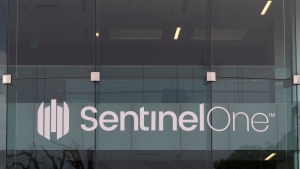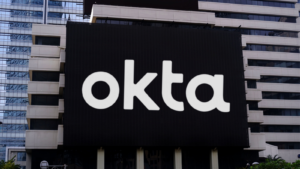One of the most obvious ways to silence the bears is to S&P 500After all, this collection of 500 prominent U.S. publicly traded companies incorporates diverse business models, corporate missions, and economic outcomes as the foundation of their value.
However, information technology stocks, one of the most valuable categories, may be significantly overvalued. As these stocks fall, ancillary supports such as manufacturing and cybersecurity also fall. This may lead investors to consider which of their overvalued cybersecurity stocks they should sell before the crash wipes out their gains.
Cybersecurity stocks may be especially overvalued because of their highly speculative nature. While many investors understand the value of cybersecurity companies' services, few understand how they work. This has created enthusiasm among retail investors who are investing in the fast-growing industry out of fear of missing out. But now, cracks are emerging among some of the leading cybersecurity companies.
Sentinel One (S)

Image source: Tada Images / Shutterstock.com
Perhaps one of the biggest disappointments in the cybersecurity industry is Sentinel One (New York Stock Exchange:S) has been unable to maintain the momentum of its November 2023 gains, down about 19% year to date and 53% since its July 2021 listing, but the company has tried to ease investor fears by highlighting improving profit margins.
Not being profitable is normal for emerging technology companies, but it's hard to justify for a service provider like SentinelOne. With earnings conference calls scheduled for this week, investors should carefully consider their options.
If you currently own the stock, you may be disappointed by the sell-off that occurred after the last earnings report, but given the company's year-over-year improvement, the stock is likely to surge again, so the best time to sell may be after the May 30 report.
But S shares are unlikely to deliver the steady revenue they need to remain relevant over the next few years, and as a cybersecurity company it's still in its relative infancy, meaning it could suffer from a potential bear market and investor caution.
OKTA

Image credit: Poetra.RH / Shutterstock.com
Despite steadily increasing revenues and profit margins, Octa (Nasdaq:Octa) may be overvalued. The company is a Wall Street analyst darling, even though its flagship identity management and verification product is nothing revolutionary.
Currently, most of the speculative short-term value in the company comes from the company's continued growth, which is likely to continue when the company's next earnings report is released on May 29th.
With a stock price surge imminent, the best time to sell would be immediately after the earnings report hits full force. However, in the longer term, as the identity management market becomes saturated, Okta's real profitability will likely slow, causing the company's stock price to decline.
Moreover, while the company's services are important, a recession would hurt the company's ability to grow due to a lack of new customers. Therefore, given its current profitability and lack of long-term prospects, investors should consider Okta as one of the cybersecurity stocks to sell after profits have peaked in its next earnings report.
Rapid 7 (RPD)

Image credit: vs148 / Shutterstock
Once considered one of the leading cybersecurity companies, Rapid 7 (Nasdaq:What is RPPD?) has recently come under scrutiny after a series of exposed vulnerabilities and eroded trust in its service, and despite a strong quarterly financial result in its most recent earnings report, the company has lost roughly 30% of its value this year.
Additionally, recent declines in annual recurring revenue suggest that customers may not be approving of Rapid7's cybersecurity delivery methods.
Every service provider makes mistakes, but in the world of cybersecurity, reputation is everything, so any erosion of customer trust in RPD's services could lead to a snowballing ARR loss over the next few quarters, potentially causing the stock price to fall further as investors pull out of overbought shares.
Therefore, investors should carefully decide when to sell their Rapid7 positions to minimize losses before the company's next earnings report. Moreover, the company's current situation serves as a warning for one major intangible aspect of cybersecurity companies: their reputation.
As of the publication date of this article, Viktor Zarev did not hold (either directly or indirectly) any positions in the securities mentioned in this article. The opinions expressed in this article are solely those of the author, which is subject to InvestorPlace.com copyright. Publication Guidelines.


